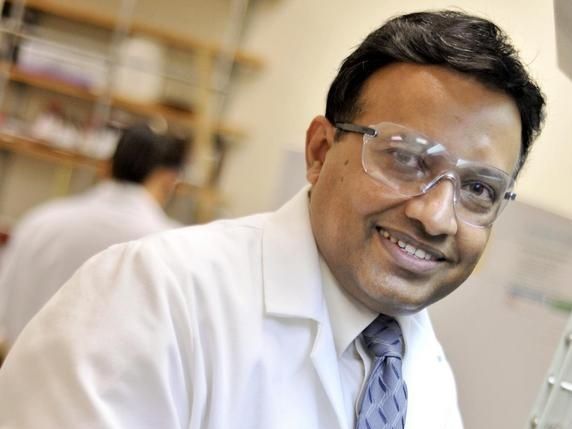Chemists pioneer work to reduce carbon emissions
“My team and I have been hard at work trying to find more sustainable ways to separate, purify and trap ethylene..."
Advertisement
Production of ethylene is one of the most important chemical processes used today, with about 300 million metric tons of the tiny chemical produced each year. Ethylene gas is used to create everyday items like shopping bags and plastic film packaging.

Rasika Dias, professor and chair of chemistry and biochemistry at The University of Texas at Arlington
Photo courtesy University of Texas at Arlington
However, ethylene production consumes massive amounts of energy; by some estimates, methods used to purify gases like ethylene are responsible for about 0.8% of the world’s total carbon emissions. Ethylene must be separated from unwanted byproducts through steam cracking, a process that breaks down hydrocarbons by refining petroleum or natural gas.
A team of UTA chemists led by Rasika Dias, professor and chair of chemistry and biochemistry at The University of Texas at Arlington, has found a method that could make these processes more sustainable. In recent findings published in the journal Chemical Science, Dias reports on a type of silver containing material that can absorb ethylene in its solid state, while undergoing remarkable changes in its structure. Such shape-shifting molecules could lead to sustainable ways to catch, purify and release gaseous ethylene.
This new finding is so significant that the editors of Chemical Science, the flagship journal of the Royal Society of Chemistry, chose to place the story on the cover of its latest issue.
“My team and I have been hard at work trying to find more sustainable ways to separate, purify and trap ethylene since the chemical is so commercially important to our economy, from the petrochemical industry to agriculture,” Dias said.
The research team included UTA graduate student Devaborniny Parasar and scientist Mukundam Vanga and colleagues from Argonne National Laboratory in Argonne, Illinois; Stony Brook University in Stony Brook, N.Y.; Universidad San Sabastian in Santiago, Chile; and Taras Shevchenko National University in Kyiv, Ukraine.
“The magnitude and speed of structural changes gaseous ethylene propels on silver ion containing solids are quite unbelievable and have not been explored in such intricate detail,” Dias said. “It is also challenging to stabilize molecules with ethylene on silver as they create weak bonds with each other. This work also sheds light on our copper-based ethylene purification technology.”
In this research, the team used innovative, single crystal X-ray and powder X-ray diffraction techniques to get a clear understanding of the process “live” in molecular form, including seeing the shapes of the molecules with and without ethylene. The results of the experiment were then studied using detailed computational techniques, which led to the insight that silver and ethylene could be successfully stabilized in various forms.
“Our research is exciting because it shows for the first time live ethylene-driven chemistry in solid, crystalline materials,” Dias said. “Although our work is preliminary, it has huge implications for how we can work to make raw materials for plastic creation more environmentally friendly.”




























































